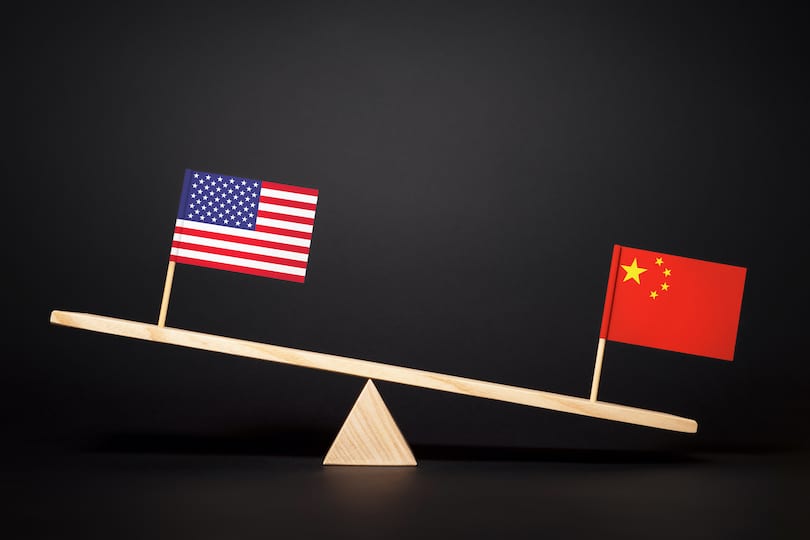Jia on the U.S.- China Rivalry
September 7, 2023

Kotenko Oleksandr/Shutterstock
Mark Jia has posted an interesting new article on SSRN, American Law in the New Global Conflict. It considers how China has shaped U.S. law historically and how the current rivalry between the U.S. and China will play out for domestic law. The history is fascinating. It discusses not only the racist and xenophobic Chinese exclusion cases and their familiar impact on the plenary powers doctrine, but also less well-known influences including the Founders’ admiration for Chinese ideas, the creation of a federal district court in China, and the role of China in generating the Youngstown case.
The paper does a nice job comparing current political dynamics between China and the U.S. to the Cold War between the Soviet Union and the United States, and then turns to the effect of today’s rivalry on civil liberties and rights, on presidential power and separation of powers generally, and on a decline in rationalism (defined as “reason constrained neutrality).” It hits at some major themes in foreign relations law, including the extent to which changes in the global stature and power of the United States have influenced the judicial decision-making around questions of international law. It also implicitly invites the reader to wonder how U.S. law would be different if Cuba had not expropriated sugar, if Mr. Tompkins had taken a different path home, if Iran had not taken hostages in 1979, or the Chaco War had never happened.
Here is the abstract:
International conflict has profoundly influenced American law. It has shaped the scope of our civil rights and civil liberties, transformed the balance of our constitutional institutions, and fostered shifts in our legal culture. This Article is the first to comprehensively assess how today’s principal conflict, a growing rivalry between the United States and China, is shaping the American legal system. It contends that the new global conflict is reproducing, in attenuated form, the same politics of threat that has driven wartime legal development for much of our history. The result is that American law is reprising familiar patterns and pathologies. There has been a diminishment in rights among groups with imputed connections to a geopolitical adversary. But there has also been a modest expansion in rights where affected constituencies have linked desired reforms with geopolitical goals. Institutionally, the new global conflict has at times fostered executive overreach and increased interbranch and interparty consensus. Legal-culturally, it has evinced a decline in legal rationality resulting from the return of familiar ideological and nationalistic frames. Although these developments do not rival in magnitude the excesses of America’s wartime past, they evoke that past and may, over time, replay it. The Article provides a framework for understanding legal developments in this new era, contributes to our understanding of rights and structure in periods of conflict, and offers some tentative reflections on what comes next in the new global conflict, and how best to shape it.